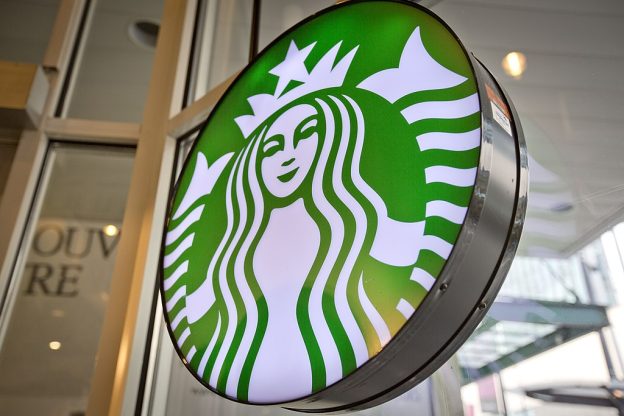Matthew Mallon – Since 2021, Starbucks locations across the country have elected to be represented by the Starbucks Workers United union, an affiliate of the Service Employees International Union (“SEIU”). Over 380 locations have voted to unionize, but despite this, no location has been able to negotiate a collective bargaining agreement with the company. Starbucks, which calls its employees “partners,” uses multiple anti-union tactics to avoid its bargaining obligations. These tactics include closing unionized stores, firing union leaders, and refusing to negotiate in good faith with the union. This has resulted in regional directors of the National Labor Relations Board (“NLRB”) issuing over one hundred unfair labor practice complaints against the company, alleging over four hundred violations of federal labor law. Starbucks has fought these charges and appealed decisions to the Supreme Court, which recently agreed to take up a petition over an order requiring Starbucks to rehire union activists.
Recently, Starbucks sent a letter to the union saying that the company hopes to bargain for and ratify contracts in 2024, but its New Year’s resolution got off to a rough start. At the beginning of January, the NLRB issued a consolidated complaint against Starbucks, accusing the coffee company of refusing to bargain collectively with over 400 stores in about 200 cities. Then, the SEIU, on behalf of Starbucks Workers United, filed a complaint asking the Department of Labor to probe whether Starbucks fully disclosed its costs on anti-union activity. The SEIU accused Starbucks of using overly broad subpoenas to collect sensitive information and chill unionization. On top of this, other pressures on the company, like an unrelated consumer lawsuit about misleading marketing, pushed shareholders to demand change at the board level to avoid further reputational harm and loss of shareholder value.
The Strategic Organizing Center (the “SOC”)—a coalition of three labor unions, including the SEIU—sent a letter to Starbucks’s shareholders calling for a change in the board of directors to maximize shareholder value by fixing the company’s reputation after years of anti-union activities. The SOC believes that Starbucks’s anti-union strategy “has resulted in one of the most glaring and destructive examples of human capital mismanagement in modern U.S. history.” The SOC sought to replace three members of the Starbucks board in the company’s March 13th board election who, due to their leadership positions, “bear primary responsibility for the complacency and lack of oversight that has led Starbucks to the current crisis it finds itself in.” The SOC nominated three individuals with experience in government, labor management, and corporate governance. The SOC believed these nominees would help the company address the complicated labor-relations issues that the current board created.
The SOC, which owns only $16,000 of Starbucks’s $105 billion market capitalization, relied on the new Universal Proxy rules to pursue its shareholder activism campaign. The Universal Proxy rules require the company to put all candidates for a contested board election on one proxy card sent by the company. Since management must send the dissident candidates with their proxy materials, the cost of initiating a contested director election is much lower. The rules also theoretically make it more likely that a dissident candidate will be elected since shareholders can mix and match their votes between the management and activist slates through a proxy as if they voted in person.
There have been other single-issue campaigns since the adoption of the universal proxy rules, with varying success. Campaigns that align their focus on a single issue with a significant risk to shareholder value tend to be more successful, such as Carl Icahn’s campaign at Illumina and Engine No. 1’s campaign at Exxon, which both won board seats. The SOC believed their campaign was similarly compelling for shareholders because the lack of oversight on labor issues has exposed Starbucks to significant regulatory and legal risk—which, according to the SOC, would damage the company’s share price in the long run.
Despite that, the SOC ended the proxy fight and withdrew its nominees a week before the shareholder vote. The SOC and Starbucks agreed to work together to reach collective bargaining agreements, resolve litigation, and provide a fair process for union organization. The agreement also included an immediate victory for the union, as Starbucks agreed to provide benefits to employees represented by the union, including credit card tipping, which were previously reserved for non-unionized baristas. Starbucks also previously announced its plan to create an Environmental, Partner, and Community Impact board committee to hold the company accountable. Shareholders believe that the company “has committed to these changes in good faith and intends to begin to repair its relationship with its workers.” With other contributing factors like the multiple NLRB cases being decided and appealed, the DOJ probe, and the consumer lawsuit, Starbucks may finally negotiate collective bargaining agreements for its employees who have been fighting for their rights for nearly three years.
This was the first time a labor union used shareholder activism as a tool in a labor dispute. Although they withdrew, the agreement between the parties and the publicity surrounding the shareholder vote show the viability of unions bringing labor disputes to the boardroom. The Universal Proxy rules make it easier for labor unions to access board elections and use this strategy to produce change for their members. This may have significant consequences for companies like Amazon, which has engaged in a similar anti-union strategy.


